10 Collaborative Economy Books to Give for The Holidays
CJ Todd | December 13, 2016


Don't know what to get that special entrepreneur in your life this holiday season? Look no further! These 10 collaborative economy books are the perfect gift idea for anyone looking to start a business in 2017.
The collaborative economy has not only given us mega-companies like Airbnb and Uber, it's also demonstrated the innovative, community-based approach to generating revenue from the products and services already in existence.
This new economic model is paving the way for businesses of the future. Here are the 10 books that will help you understand the collaborative economy and position your current or future business for success in the sharing landscape.
by Chelsea Rustrum, Gabriel Stempinski, and Alexandra Liss
Three 20-somethings started off as strangers and came together through experiencing the life-altering benefits of sharing. Through their sharing experiments, they gifted, bartered, rented, and swapped their way to a richer life.
Now, you too can learn how to lead a Shareable Life through the practical know-how and real life stories highlighted in this comprehensive guide.
LEARN HOW TO:
- Live rent free
- Pay for your car
- Increase your free time
- Work from anywhere
- Find work, even in a down economy
- Travel the world on a backpacker budget
- Reduce your monthly expenses sharing
- Build a stronger community
- Develop more trust in people
- Create a healthier lifestyle
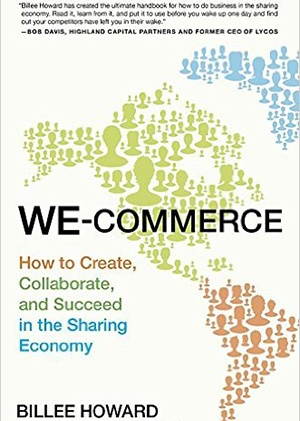 2. We-Commerce: How to Create, Collaborate, and Succeed in the Sharing Economy
2. We-Commerce: How to Create, Collaborate, and Succeed in the Sharing Economy
In WE-Commerce, visionary marketing strategist Billee Howard lays out her plan for a new vision of success and long-term, purposeful profitability in the new global, sharing economy
Today, the most successful businesses and entrepreneurs thrive through connectivity, socialization, and sharing. It is an age of WE-Commerce, an economy centered on the power of “we” instead of “me,” focused on the needs of the many over the few. Booming companies such as Uber and Airbnb leverage technology to create platforms that rely largely on social media and community feedback to facilitate people’s ability to collaborate with one another. Instead of traditional business strategies, companies must now inspire belief and trust in their communities; collaborate with their customers; create business models that are socially and environmentally responsible; find opportunities for creative collaboration with large, global markets; and become a new generation of innovators—“artists of business.”
With advice from “stay small but include all” to “profit with purpose” and “embrace disruption,” Billee Howard gives readers the reinvented business toolkit that they will need to effectively collaborate, co-create, and succeed in a WE-Commerce landscape, and to acquire a new set of skills that will position them as leaders in the transformed economy.
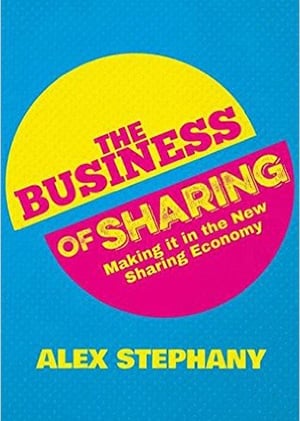 3. The Business of Sharing: Making it in the New Sharing Economy
3. The Business of Sharing: Making it in the New Sharing Economy
Why buy a hedge trimmer that you use twice a year? Why not borrow someone else’s? Why leave your driveway empty all day while you’re at work? Why not charge someone to park there while you’re not using it? And if your business is selling hedge trimmers or parking – or anything else people can share – what do you do about it?
Written by one of the business leaders of the movement, The Business of Sharing is an insider’s guide to the sharing economy. From the boardroom of Sequoia Capital to 10 Downing Street, Stephany meets the power brokers pulling the strings in this new economy. And he meets the ordinary people cashing out.
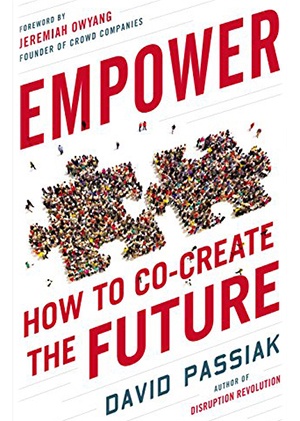 4. Empower: How to Co-Create the Future
4. Empower: How to Co-Create the Future
by David Passiak (Author) and Jeremiah Owyang (Foreword)
Empower is a call to action for humanity to work together and co-create the future, demonstrating that collaboration and sharing, community-building and value creation, are not only the right thing to do, but best practices for business, society, and culture.
Explore crowd companies like Airbnb, Lyft and Uber; on-demand work, automation, and the gig economy; bitcoin and the blockchain; and the rise of AI, drones, self-driving vehicles, and robots. Taking a wisdom of the crowd approach, Empower features visionary entrepreneurs, bestselling authors, and leaders of the Collaborative and Sharing Economy:
Extensively researched and written by David Passiak, author of Disruption Revolution and Red Bull to Buddha, Empower aims to start a global conversation about our future. A former religion scholar and expert at building movements, Passiak presents a vision for how humanity can transcend differences through collaboration and sharing between companies and startups, nonprofits and governments. This is a timely book.
 5. Ubernomics: How to Create Economic Abundance and Rise above the Competition
5. Ubernomics: How to Create Economic Abundance and Rise above the Competition
by Barbara Gray
STEP INSIDE THE NEXT GENERATION OF ECONOMICS, BUSINESS STRATEGY, AND INVESTING
In this radical business book, Barbara Gray makes it clear that all is not as it seems. Just when we think we know the rules of the road, we find we have hit the age of economic abundance—and surprises await.
Gray navigates us through this journey with great insight and acuity, sharing stories and case studies about a new breed of “rebel with a cause” companies such as Starbucks, LinkedIn, Airbnb, and Uber, whose founders relish disruption of the status quo. Taking us through the highlights of her research, Gray reveals her discovery of the next generation of business strategy for companies looking to create economic abundance and rise above the competition.
Listen to Near Me's Barbara Gray's podcast!
by Robin Chase
When Robin Chase cofounded Zipcar, she not only started a business but established the foundation for one of the most important economic and social ideas of our time: the collaborative economy. With this important book, she broadens our thinking about the ways in which the economy is being transformed and shows how the Peers Inc model is changing the very nature of capitalism.
When the best of people power is combined with the best of corporate power to form “Peers Inc” organizations, a potent creative force is released. The “Inc” in these collaborations delivers the industrial strengths of significant scale and resources, and the “Peers” bring together the individual strengths of localization, specialization, and customization, unlocking the power of the collaborative economy. When excess capacity is harnessed by the platform and diverse peers participate, a completely new dynamic is unleashed.
Chase casts a wide net, illuminating the potential of the Peers Inc model to address broader issues such as climate change and income inequality, and proves the impact that this innovative economic force can have on the most pressing issues of our time.
Listen to Near Me's Robin Chase Podcast!
 7. The Sharing Economy: The End of Employment and the Rise of Crowd-Based Capitalism
7. The Sharing Economy: The End of Employment and the Rise of Crowd-Based Capitalism
Sharing isn't new. Giving someone a ride, having a guest in your spare room, running errands for someone, participating in a supper club -- these are not revolutionary concepts. What is new, in the "sharing economy," is that you are not helping a friend for free; you are providing these services to a stranger for money. In this book, Arun Sundararajan, an expert on the sharing economy, explains the transition to what he describes as "crowd-based capitalism" -- a new way of organizing economic activity that may supplant the traditional corporate-centered model. As peer-to-peer commercial exchange blurs the lines between the personal and the professional, how will the economy, government regulation, what it means to have a job, and our social fabric be affected?
Drawing on extensive research and numerous real-world examples -- including Airbnb, Lyft, Uber, Etsy, TaskRabbit, France's BlaBlaCar, China's Didi Kuaidi, and India's Ola, Sundararajan explains the basics of crowd-based capitalism. He describes the intriguing mix of "gift" and "market" in its transactions, demystifies emerging blockchain technologies, and clarifies the dizzying array of emerging on-demand platforms. He considers how this new paradigm changes economic growth and the future of work. Will we live in a world of empowered entrepreneurs who enjoy professional flexibility and independence? Sundararajan highlights the important policy choices and suggests possible new directions for self-regulatory organizations, labor law, and funding our social safety net.
Listen to Near Me's Arun Sundararajan Podcast!
In The Zero Marginal Cost Society, New York Times bestselling author Jeremy Rifkin describes how the emerging Internet of Things is speeding us to an era of nearly free goods and services, precipitating the meteoric rise of a global Collaborative Commons and the eclipse of capitalism.
Rifkin uncovers a paradox at the heart of capitalism that has propelled it to greatness but is now taking it to its death―the inherent entrepreneurial dynamism of competitive markets that drives productivity up and marginal costs down, enabling businesses to reduce the price of their goods and services in order to win over consumers and market share. (Marginal cost is the cost of producing additional units of a good or service, if fixed costs are not counted.) While economists have always welcomed a reduction in marginal cost, they never anticipated the possibility of a technological revolution that might bring marginal costs to near zero, making goods and services priceless, nearly free, and abundant, and no longer subject to market forces.
Rifkin concludes that capitalism will remain with us, albeit in an increasingly streamlined role, primarily as an aggregator of network services and solutions, allowing it to flourish as a powerful niche player in the coming era. We are, however, says Rifkin, entering a world beyond markets where we are learning how to live together in an increasingly interdependent global Collaborative Commons.
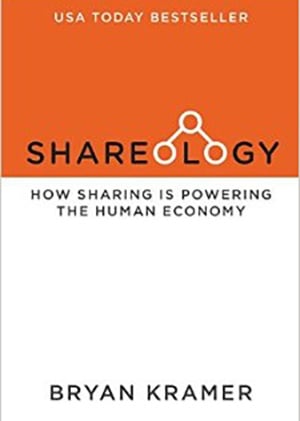 9. Shareology: How Sharing is Powering the Human Economy
9. Shareology: How Sharing is Powering the Human Economy
by Bryan Kramer
Technology continues to evolve and make our lives busier and more complicated, but it can never replace true human connection--our fundamental need to share information, stories, and emotions.
Sharelogy explores the history, art and science of sharing, and illustrates why sharing is what gives us a unique competitive advantage as individuals and brands. It is meant for entrepreneurs and marketers who want to make their content more valuable, shareable, and for individuals who want to understand the power of sharing to grow their personal brand.
Kramer's best-selling second book, Shareology raced onto the USA Today's Top 150 Book List the week of its release, as well as onto #1 on Amazon in four categories including Business & Planning, Strategic Planning, Hot New Releases and Communications, and Business Best Sellers Top 25 and Jack Covert Selects list on 800 CEO Reads.
Bryan Kramer is a renowned global speaker, consultant and trainer. He's also one of the world's foremost leaders in the art and science of sharing, and has been credited with instigating the #H2H human business movement in marketing and social, which was the basis for his first book: There is No B2B or B2C: It's Human to Human #H2H ~ another Amazon bestseller.
Listen to Near Me's Bryan Kramer podcast!
by Geoffrey G. Parker, Marshal W. Van Alstyne and Sangeet Paul Choudary
Uber. Airbnb. Amazon. Apple. PayPal. All of these companies disrupted their markets when they launched. Today they are industry leaders. What’s the secret to their success?
These cutting-edge businesses are built on platforms: two-sided markets that are revolutionizing the way we do business. Written by three of the most sought-after experts on platform businesses, Platform Revolution is the first authoritative, fact-based book on platform models. Whether platforms are connecting sellers and buyers, hosts and visitors, or drivers with people who need a ride, Geoffrey G. Parker, Marshall W. Van Alstyne, and Sangeet Paul Choudary reveal the what, how, and why of this revolution and provide the first “owner’s manual” for creating a successful platform business.
Platform Revolution teaches newcomers how to start and run a successful platform business, explaining ways to identify prime markets and monetize networks. Addressing current business leaders, the authors reveal strategies behind some of today’s up-and-coming platforms, such as Tinder and SkillShare, and explain how traditional companies can adapt in a changing marketplace. The authors also cover essential issues concerning security, regulation, and consumer trust, while examining markets that may be ripe for a platform revolution, including healthcare, education, and energy.
Let us know what you think of the list with a comment below!
Interested in knowing more about partnering with platformOS?
Ensure your project’s success with the power of platformOS.

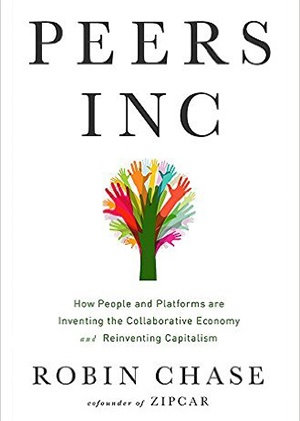 6. Peers Inc: How People and Platforms Are Inventing the Collaborative Economy and Reinventing Capitalism
6. Peers Inc: How People and Platforms Are Inventing the Collaborative Economy and Reinventing Capitalism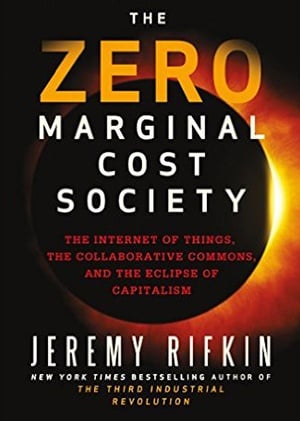 8. The Zero Marginal Cost Society: The Internet of Things, the Collaborative Commons, and the Eclipse of Capitalism
8. The Zero Marginal Cost Society: The Internet of Things, the Collaborative Commons, and the Eclipse of Capitalism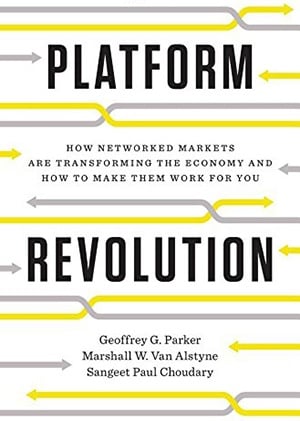 10. Platform Revolution: How Networked Markets Are Transforming the Economy -- And How to Make Them Work for You
10. Platform Revolution: How Networked Markets Are Transforming the Economy -- And How to Make Them Work for You